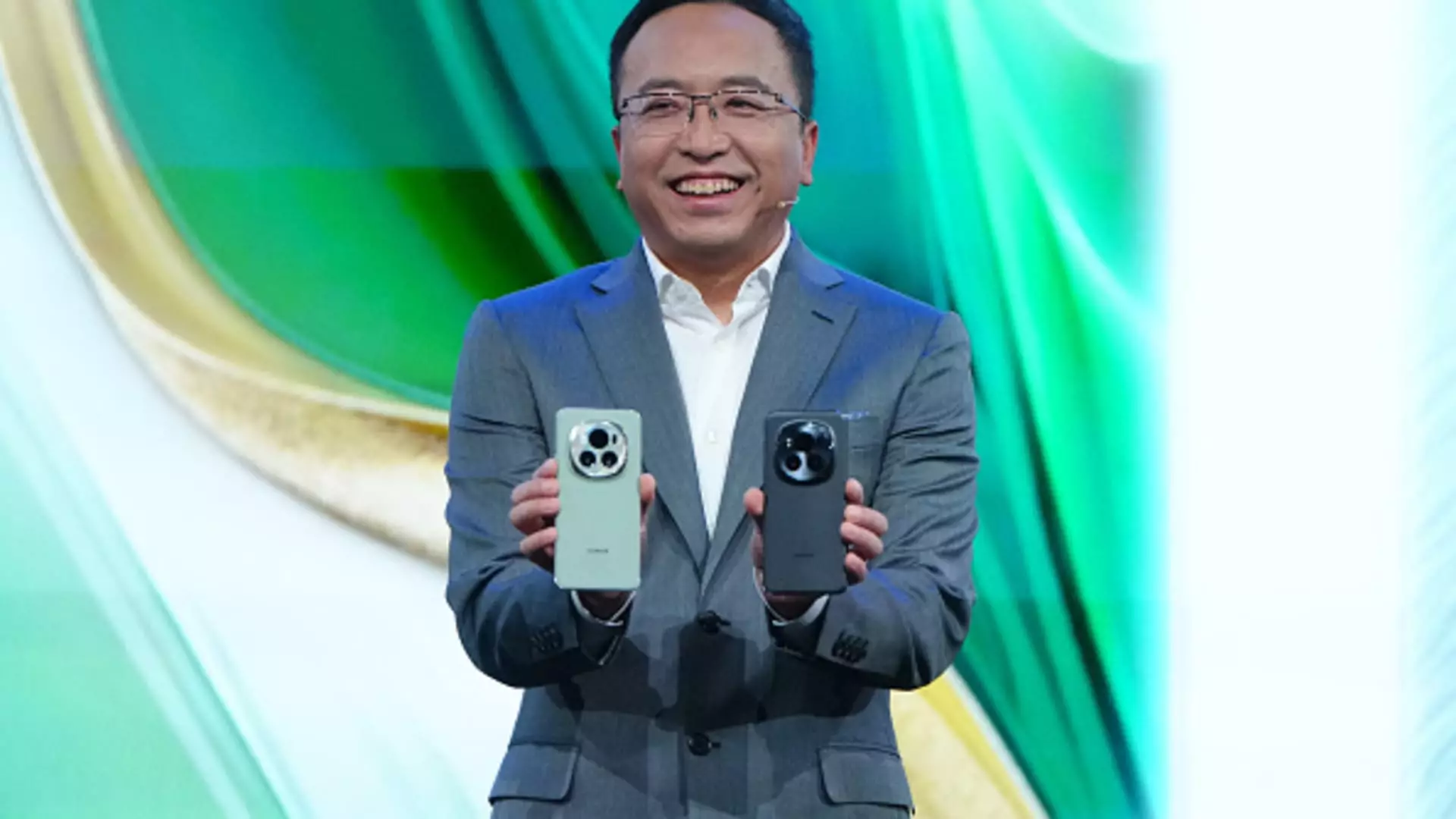In a significant development within the tech industry, George Zhao has stepped down as the CEO of Honor, the Chinese smartphone manufacturer renowned for its bold innovations and competitive spirit. The company announced this decision on Friday, citing personal health reasons as the motivating factor behind Zhao’s departure. In an internal memo, Zhao expressed that this decision was profoundly challenging for him, marking a turning point not only for himself but also for the company he has led through pivotal changes. His leadership was instrumental in steering Honor through a complicated business landscape, particularly against the backdrop of a post-Huawei era.
Transition to New Leadership
Following Zhao’s resignation, Jian Li, who has held various senior positions within Honor for the past four years, will step into the CEO role. This transition was part of a strategic maneuver by the Board of Directors to ensure continuity and stability during what is undoubtedly a crucial phase for Honor. The appointment is expected to maintain the company’s operational momentum, allowing for a seamless continuation of existing projects, particularly as Honor gears up for its much-anticipated initial public offering (IPO) planned for this year.
Under Zhao’s tenure, Honor has aggressively established itself in international markets, increasing its market share significantly from 9.8% in 2020 to more than 15% in 2024 in China, according to Counterpoint Research. A notable achievement has been the company’s strategic focus on high-end smartphones, including cutting-edge foldable devices. As Zhao moves on, the new leadership must confront the pressing challenge of sustaining this growth trajectory, particularly amid escalating competition from established players such as Samsung and Apple in both the Chinese market and globally.
Neil Shah, a partner at Counterpoint Research, anticipates that the new CEO will continue to drive the company’s premiumization strategy, aiming to fortify Honor’s market position against rivals. This strategy encompasses incorporating advanced artificial intelligence features and maintaining close partnerships with top component suppliers, ensuring that Honor remains at the forefront of technological innovation.
One of the critical hurdles for Jian Li will be enhancing Honor’s recognition and visibility outside of China. As Shah notes, “Many don’t know Honor” beyond its domestic market, signifying the immense potential that resides in effectively expanding the brand’s footprint internationally. As the company looks to appeal to new consumer demographics globally, marketing efforts must emphasize the unique qualities that set Honor apart from its competitors.
Honor’s evolution from a subsidiary of Huawei to an independent brand represents not just a rebranding effort but also a significant shift in strategy that aligns with its aspirations. As the industry continues to grow and evolve, the path ahead for Honor is likely to be rife with both challenges and opportunities, necessitating a focused approach driven by innovation, visibility, and consumer engagement.
As Honor embarks on a new chapter with fresh leadership, it remains to be seen how the brand will navigate the complexities of the tech landscape while continuing to build on the legacy of its previous executive.


Leave a Reply